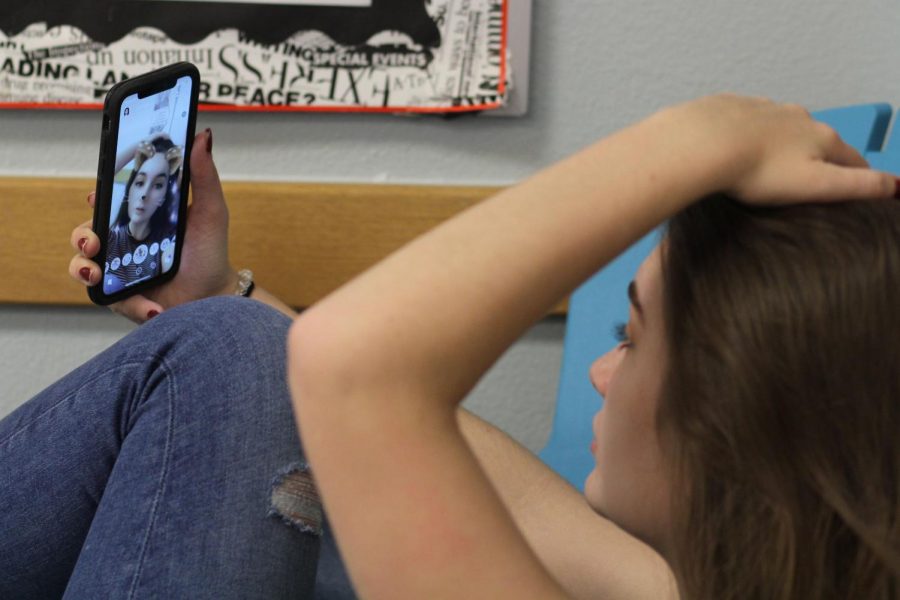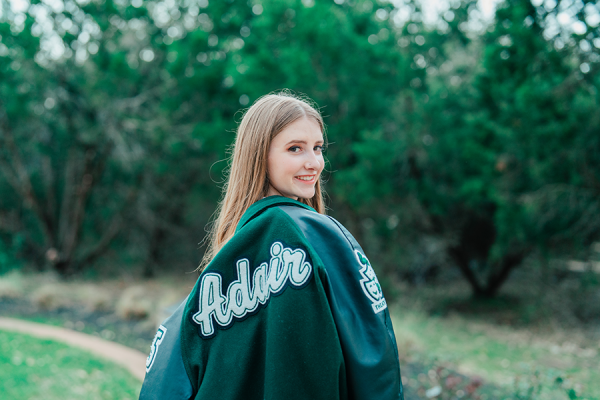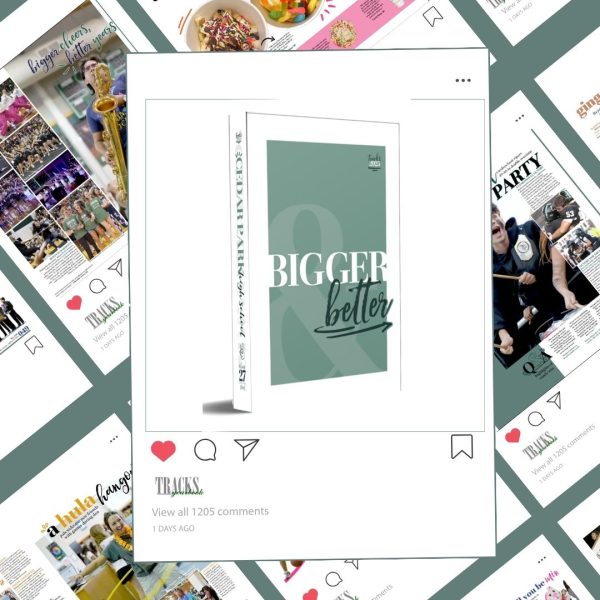A Digital Mask
Students, Teacher Speak Out About Real Life Issues Related to Social Media Standards
Sophomore Ireland Weaver takes photos on Snapchat. Weaver says that the only reason she uses filters is so she can have fun with them herself. “I think filters are like digital makeup,” Weaver said. “I put filters on my photos to make them pleasing to me, it’s not for anyone else.”
September 10, 2019
Today in society there have been recorded events of models, celebrities and teenagers having their pictures Photoshopped and then published with or without consent. Even though using filters and changing the way people look can make them seem more socially presentable and better looking, according to sophomore Ireland Weaver, it can take a toll on how other people perceive them.
“I think it can make people feel worse about themselves,” Weaver said. “You go on Instagram and you see all these beautiful people and you can’t help but compare yourself. They look so pretty and hot and you’re sitting there looking like a cold wet sack of trash. What you don’t think about is those beautiful people are feeling the same way you do, we are all looking to fit in.”
There are so many tools nowadays that can aid in editing pictures, Adobe Photoshop being one of the most popular programs, with the inclusion of apps like Facetune, and even Instagram and Snapchat. However, the usage of these apps vary on a person’s intention.

“I think part of the reason is [that] they’re not comfortable, or they have options of filters to use that look brighter or prettier than the original picture,” sophomore David Smithhart said. “I believe it’s a mix of both, people wanting to change how they look and doing it because they can. They see the options right in front of them and they can see which one is so obviously better, so they’ll choose the edited one because they want the best looking picture to post.”
In a recent Instagram story poll on @CPHSNews, 31 out of 34 (91 percent) of people voted that there is more of a stereotype on females for editing and Photoshopping pictures than there is for males.
“There is definitely more social pressure on females to use Photoshop,” AP Psychology teacher Nancy Steele said. “Many girls and women fear being socially and publicly shamed for their appearance. I do understand, however, that more and more males are facing body image problems.”
According to Oberlo, a website with a collection of social media statistics, “Social media statistics from 2019 show that there are 3.2 billion social media users worldwide, and this number is only growing. That equates to about 42 [percent] of the current population.” Regardless of what the guidelines for each app are, there will always be those who are younger than what the criteria intend, which leads to more preteens and teens being affected more harshly than the circumstances would warrant. For example in Influence Central’s 2016 Digital Trends Study, they stated that 39 percent of kids got their first social media account “between[the] ages [ten] and 12,” which is younger than the minimum age of 13 many companies require.
“I believe that it affects teens differently,” Smithhart said. “They’re growing up and are under a constant feel[ing] of ‘oh that person looks good, that’s a nice filter, I want it,’ and they feel that they constantly have to look pretty, and always show the best of themselves.”
In the end, Steele said that even if pictures are edited or modified to look a certain way, it will never be a negative thing if it is used for the right reasons.
“It’s okay if it’s used judiciously,” Steele said. “For example, nobody wants that big zit or shiny forehead on their prom, graduation, or wedding picture. But if it’s used even for the most casual photo situations, that’s where it becomes excessive in my opinion.” ![]() Loading ...
Loading ...

![Posing with their UIL State Trophy, the Robolobos Van Halen Team beams with excitement after their win. “It was a team effort,” junior Noah Vo said. “I was happy because something happened in the first match and the match was also really close. So [when] they finally revealed it, I was pretty happy.” Photo courtesy of Amy Lovelace](https://cphswolfpack.com/wp-content/uploads/2025/05/IMG_0910-EDIT-1200x723.jpg)

![Broadcast, yearbook and newspaper combined for 66 Interscholastic League Press Conference awards this year. Yearbook won 43, newspaper won 14 and broadcast took home nine. “I think [the ILPC awards] are a great way to give the kids some acknowledgement for all of their hard work,” newspaper and yearbook adviser Paige Hert said. “They typically spend the year covering everyone else’s big moments, so it’s really cool for them to be celebrated so many times and in so many different ways.”](https://cphswolfpack.com/wp-content/uploads/2025/05/edited-ILPC.jpg)
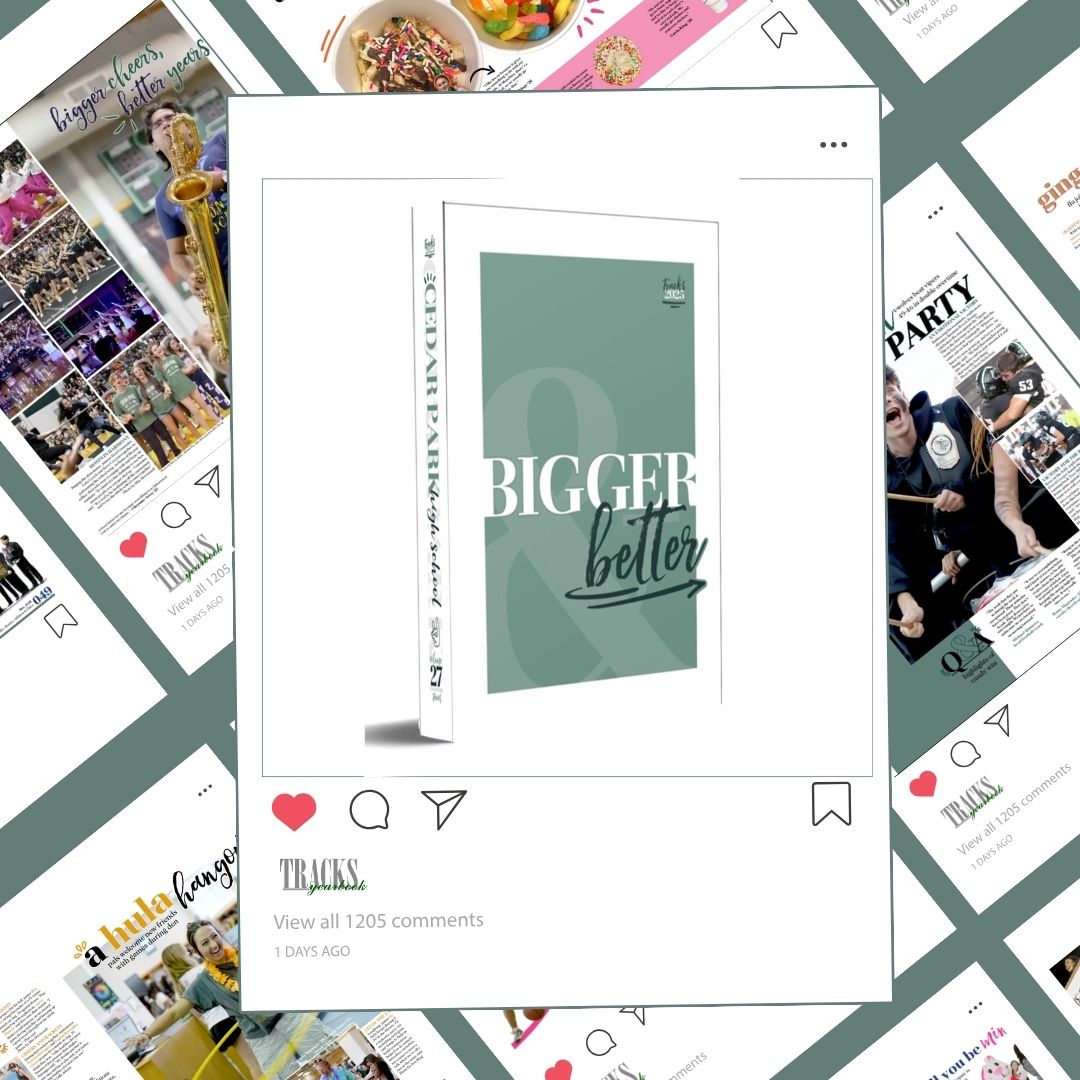










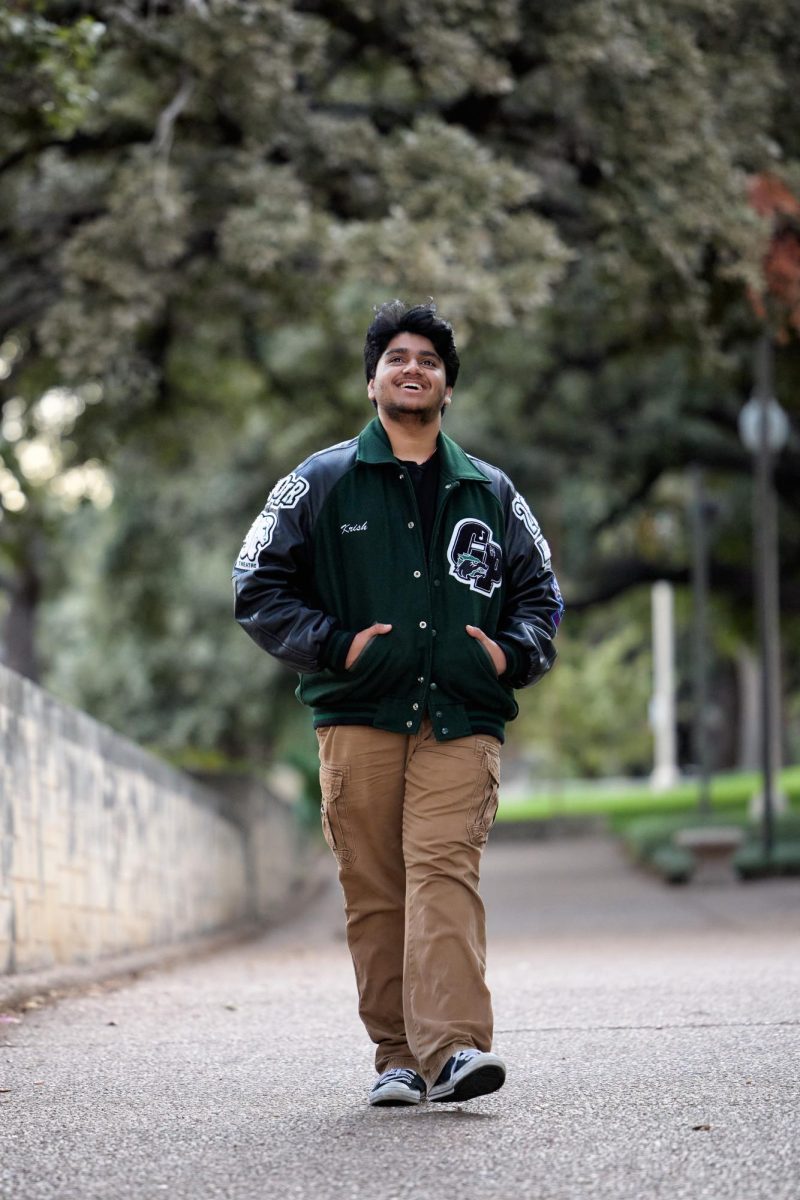

![Bringing her arm over her head and taking a quick breath, junior Lauren Lucas swims the final laps of the 500 freestyle at the regionals swimming competition on date. Lucas broke the school’s 18-year-old record for the 500 freestyle at regionals and again at state with a time of 4:58.63. “I’d had my eye on that 500 record since my freshman year, so I was really excited to see if I could get it at regionals or districts,” Lucas said. “ State is always a really fun experience and medaling for the first time was really great. It was a very very tight race, [so] I was a bit surprised [that I medaled]. [There were] a lot of fast girls at the meet in general, [and] it was like a dogfight back and forth, back and forth.” Photo by Kaydence Wilkinson](https://cphswolfpack.com/wp-content/uploads/2025/03/Kaydence-2.7-23-edit-2.jpg)
![As the support team sits and poses for a photo in the cafeteria with the counseling team they eagerly wait to start their day. "We [all] seem to be a team, I get up every day and there's days where I don't want to go to work today, but I'm thankful that I have a job and I'm blessed to have what I have," Christopherson said. Photo Courtesy of Julie Weltens.](https://cphswolfpack.com/wp-content/uploads/2025/01/AF9E8470-10D7-4C91-BF28-EC8F86BAB66C-1200x852.jpeg)
![Officer Stephanie Cash is in her second year as an SRO at CPHS. “Seeing [students] grow over the years has been kind of cool,” Officer Cash said. “Freshmen that [are] all over the place and then in the next couple of years get a little more squared away and go to class and do work and start thinking about the future. Being a part of a student's growth is the best way to measure my success as an SRO.” Photo Courtesy of Cedar Park Police Department's PIO, Alicia Gallagher.](https://cphswolfpack.com/wp-content/uploads/2024/12/CPHS-SRO-900x1200.jpg)
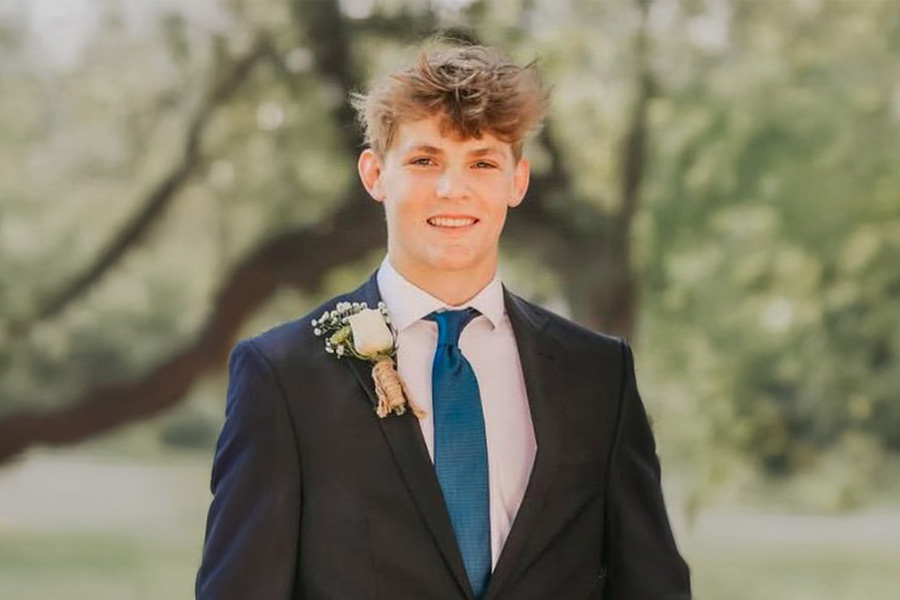


![Taking a breath as he raises his arm up and out of the water, sophomore Kaden Padilla swims the 500 freestyle at the UIL state meet on Feb. 21-22. Padilla placed 10th overall and second in the consolation final in the event, dropping two seconds. “My family was there, so being able to drop time for them was really special,” Padilla said. “It was awesome [finding out I advanced to the consolation finals]. I wasn’t expecting it, and I was very surprised. My parents being there definitely made me a lot happier knowing they got to see me swim in finals.” Photo by Skyler King.](https://cphswolfpack.com/wp-content/uploads/2025/03/kaden-padilla.jpg)

![Three defenders try to stop senior point guard Hope Edwards before the ball leaves her hands. The girls basketball team faced Liberty Hill on Feb 21, losing 58-40. “[My season was] definitely bittersweet,” Edwards said. It's definitely sad [because] I'm gonna miss all my teammates, my coaches and just the whole CP environment.”](https://cphswolfpack.com/wp-content/uploads/2025/03/julia-128-1200x800.jpg)













